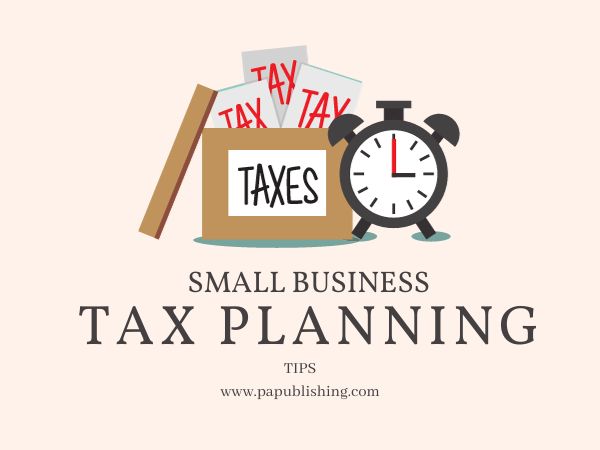5 Small Business Tax Planning Tips
Do you want to alleviate your overall business tax burdens? As a startup owner, navigating the complex landscape of taxes is a crucial aspect of financial management. While it may seem daunting, effective small business tax planning can save you money and ensure your business’s longevity. It is a proactive approach that helps the proprietors to navigate their finances. In this blog, we will explore the top five tax strategies for small business that makes tax filling a breeze.
Small Business Tax Planning
Let’s discuss small business tax planning tips one by one;
Maintain your Financial Records
One of the first steps in small business tax planning is maintaining meticulous records of your business transactions. Inadequate financial keeping can put you at the risk of an audit. For that, you should employ accounting software or apps to track income and expenses throughout the year. It simplifies your tax filing season and also ensures that you don’t miss out on any potential deductions. Keep receipts, invoices, and relevant documents organized and easily accessible.
Understand Tax Deductions
Acknowledging the deductions available to your business is key to saving on your tax returns. To maximize tax deductions, business owners operating on a cash basis can explore the option of prepaying services anticipated for the upcoming year. Common deductions include business expenses, home office deductions, and mileage.
Moreover, making donations to charities also offers potential tax benefits. You can go through IRS rules to understand the charitable deductions. Consulting with a tax professional can also provide insights into the latest laws and specific deductions that may apply to your industry. So, this small business tax planning helps in appeasing the tax liability of your business.
Leverage your Tax Credits
Tax credits are powerful tools for mitigating your overall tax liability. Identify and take advantage of any tax credits applicable to your small business. It is one of the beneficial small business tax strategies that offers discounts on your tax bill. Examples include:
- Small Business Health Care Tax Credit can help in offsetting the cost of providing health insurance to employees.
- Work Opportunity Tax Credit is allowed to employers for hiring individuals from targeted groups.
Evaluate your Business Structure
One of the significant business tax planning strategies is to consider the type of your startup. The structure of your business (sole proprietorship, LLC, S corporation, etc.) significantly impacts your tax obligations. Each structure comes with its own set of rules and tax implications. For that, consult with an accountant to ensure that your business is deploying the right tax structure as per its size, and nature.
Know when to Defer or Accelerate Income
Deferring income involves postponing the revenue recognition to a future tax year. This small business tax planning is often employed when a business anticipates lower taxable income in the future. Likewise, when delaying income recognition can result in a lower tax rate, this tactic is significant. On the flip side, accelerating income involves recognizing revenue earlier than usual to take advantage of current deductions or lower tax rates.
This strategy is beneficial when a business expects higher taxable income in the future. So, you send out invoices promptly upon completion of work to expedite the payment process. Accelerating income in a year with lower tax rates can result in reduced overall tax liability for the business.
Conclusion
In short, small business tax planning is a dynamic process that helps to optimize your business’s financial position. By following the above-discussed tips, you can cut down your tax liabilities and keep more of your hard-earned money. Also, consulting with a tax professional is an investment in financial health and securing a more prosperous tomorrow for your small business.

